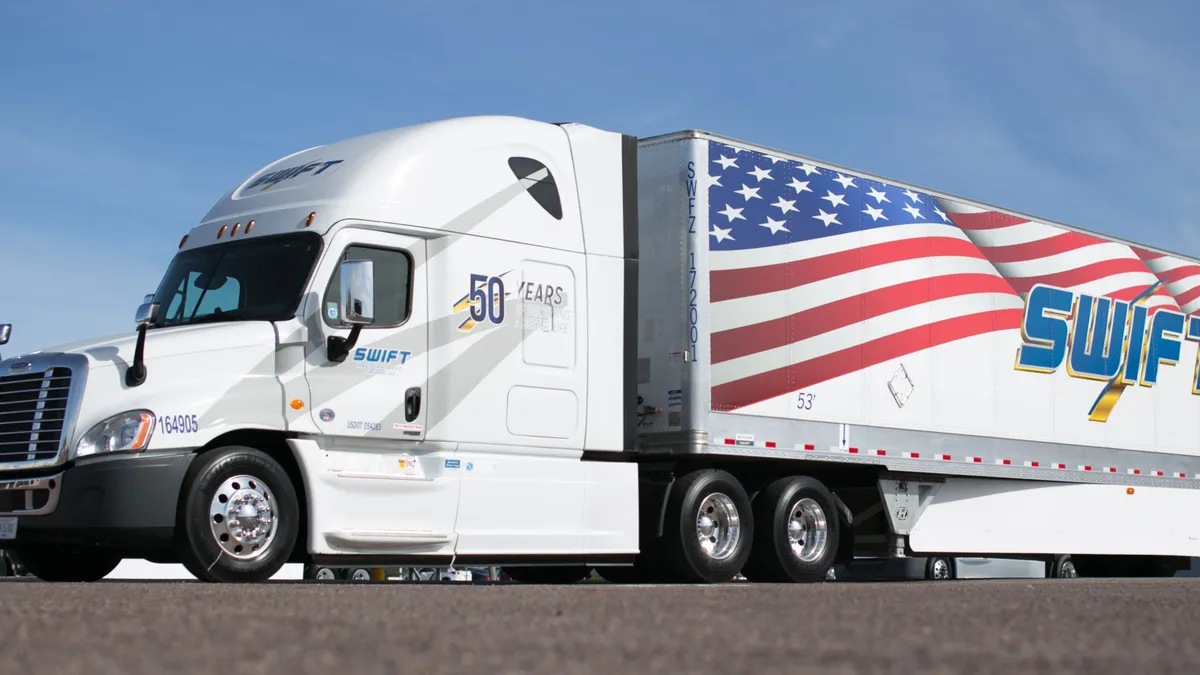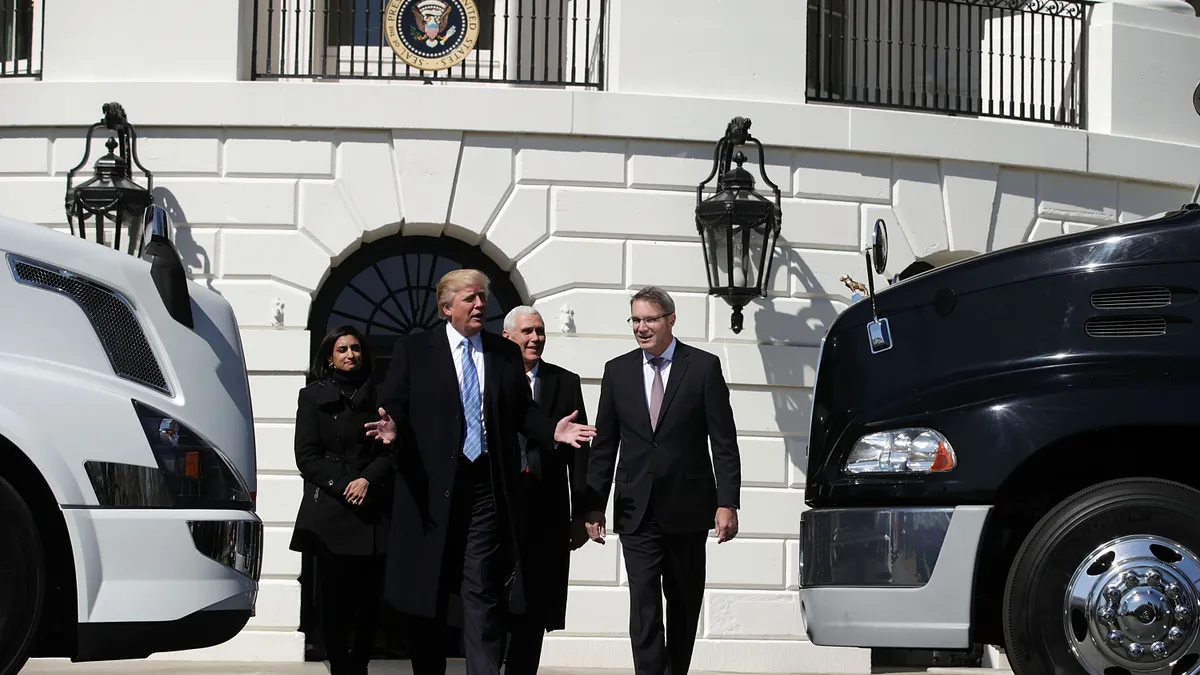July started with a bang, and it wasn't because of fireworks.
Transport-related mergers and acquisitions are underway with gusto. Two sizable carriers bought two smaller but significant trucking companies, and a major 3PL with a familiar name indicated it is making moves that will disrupt the marketplace.
For Knight-Swift, the $1.35 billion purchase of AAA Cooper, an Alabama-based LTL firm, was a first. Knight-Swift is the largest U.S. TL carrier, and AAA Cooper will add diversification to the Phoenix-based firm.
Also in the first week of July, Werner closed its first TL deal with ECM Transport Group for $142 million, acquiring 80% of the company.
Then, on Thursday, Uber Freight acquired Transplace for $2.25 billion. Uber Freight said the move "will create one of the leading logistics technology platforms." The two companies said carriers will benefit from improved operating ratios and reduced empty miles. And as Uber disrupted the taxicab business, Uber Freight could likely disrupt the load-matching and 3PL business, one expert predicted.
The trend isn't just American. In Canada, major carriers are also scooping up smaller fish.
On July 1, Alberta-based Mullen bought R.S. Harris Transport of Manitoba. Harris Transport has 50 tractors and 165 trailers, and generates $25 million Canadian annually, Mullen said. The day before, Mullen bought QuadExpress of Illinois, a 3PL, for $40 million.
Nikhil Sathe, managing director of Logisyn Advisors, said the jump in transportation M&A behavior is partly a diversification strategy on the part of major carriers. Diversification within a sector is seen as buffering companies from the ups and downs of a sub-sector, such as LTL, TL or 3PL.
The positive trucking economy and access to capital have carriers looking at a "holistic" strategy for the future, said Sathe.
Q3 kicks off with several transport acquisitions
| Purchasing company | Target company | Deal value |
|---|---|---|
| Uber Freight | Transplace | $2.25B |
| Knight-Swift | AAA Cooper | $1.35B |
| Werner | ECM Transport | $142M |
| Mullen Group | R.S. Harris Transport | Undisclosed |
Source: Company news releases
Even as some carriers look to grow from TL into LTL, or vice versa, XPO Logistics announced it would spin off its contract logistics business, now known as GXO, on Aug. 2, when it will sell its own stock.
XPO CEO Bradley Jacobs, who labored for years building XPO up using M&A, decided in 2020 that the conglomerate strategy was harming the share price of the LTL giant. Now XPO will be a "pure play" LTL carrier, while GXO will be one of the globe's largest "pure play" contract-logistics firms, according to XPO Spokesperson Fallon McLoughlin.
But XPO's move is the exception right now, and not the rule. And Sathe said he is seeing heightened M&A activity on both sides of the U.S.-Canadian border.
The big deal for now is Uber Freight. Sathe said Transplace, a TMS and logistics company, has been bought and sold before — but by private equity firms. Now Uber Freight has stepped up. That changes things for the digital load-matching service, Sathe said.
"Uber Freight is a disruptor in the market, and they are buying Transplace with a significant book of business," said Sathe.
Sathe said Uber Freight is now in a position to disrupt the 3PL sector, and it could rise to challenge major players such as C.H. Robinson and Coyote Logistics.
From that, fleets should understand that the market is signaling a big consolidation trend, said Sathe.
"I think this is going to be a great marriage," said Sathe.
Not yet a seller's market
One thing carriers could be chasing with acquisitions is capacity. When buying a carrier, the purchaser gets the trucks, the trailers and, in many cases, the drivers, who are usually in short supply.
Sathe said capacity is just one aspect in a market flush with opportunities.
"Capacity is king, but there's more at play in the market," said Sathe, citing diversification desires. And he notes now is the time to strike, when access to capital is there.
"[Private equity] is flush with a lot of cash," said Sathe.
But even with bags of cash and notes of credit, carriers often wait until a market turns southward, or is long from a peak, before buying, so they can get a better price, according to Avery Vise, FTR vice president of trucking.
"I have never seen so much money chasing deals."

Nikhil Sathe
Managing Director of Logisyn Advisors
Right now, carriers appear to believe the freight market will continue to sustain itself near or at peak levels, meaning it is not yet purely a seller's market, Vise said. FTR's research supports the conclusion that the market is far from a peak, Vise said.
As for the increase in deals, Vise said carriers feel the uncertainty about the freight economy is over. And recently, the National Bureau of Economic Research, an independent agency based in Cambridge, Massachusetts, announced the pandemic-related national recession lasted only last two months, from February 2020 to April 2020.
As for what the future of transport M&A looks like, Vise said it's possible more TL firms will buy LTL carriers, and vice versa.
Sathe said the big movement will be in mid-market firms, Sathe said, but it won't stop there. Carriers and private equity appear to feel the recovery is solid and will sustain itself for a long time.
"We see significant deals in the e-commerce space," said Sathe. "I have never seen so much money chasing deals."




















